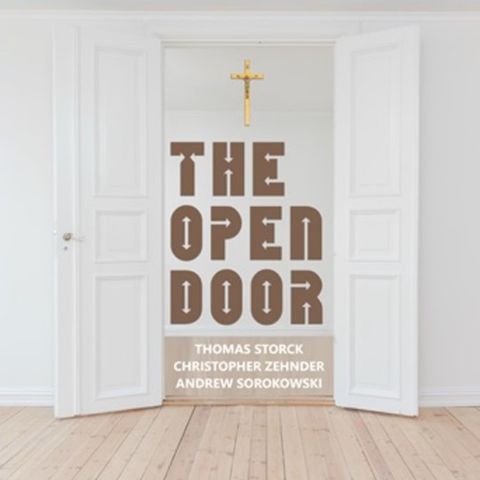Episode 179: The Open Door with John Médaille and Thomas Storck on their new book, Theology: Mythos or Logos (December 25, 2020)

Download and listen anywhere
Download your favorite episodes and enjoy them, wherever you are! Sign up or log in now to access offline listening.
Description
This week on The Open Door we discuss faith and reason. Our special guests and welcome friends are John Médaille and Thomas Storck. They have just co-authored a new book,...
show morefriends are John Médaille and Thomas Storck. They have just co-authored a new book,
Theology: Mythos or Logos: A Dialogue on Faith, Reason, and History (Angelico Press, 2020).
We ask them the following questions.
1. Can you tell us what led up to this new book?
2. What’s the difference between faith and fideism?
3. How can we distinguish between reason and rationalism?
4. Could you explain the difference between acculturation and cultural relativism?
5. Does historical consciousness lead to historicism?
6. Newman’s epigraph in his A Grammar of Assent comes from St. Ambrose: Non in dialectica complacuit Deo salvum facere populum suum. Yet the Grammar is a closely argued case for a reasonable faith. What are we to make of this?
7. Wittgenstein commented that “[religious] belief as formulated on evidence can only be the last result—in which a number of ways of thinking and acting crystallize and come together,” and then observes “That is partly why you don’t get the form of [religious] controversy where one person is sure of the thing, and the other says: ‘well, possibly.’” What do you make of the view that evidence comes last in religious faith?
8. How would you evaluate the following: “[T]he relationship between theology and philosophy is best construed as a circle. Theology’s source and starting-point must always be the word of God revealed in history, while its final goal will be an understanding of that word which increases with each passing generation. Yet, since God’s word is Truth (cf. Jn 17:17), the human search for truth—philosophy, pursued in keeping with its own rules—can only help to understand God’s word better.” (St. John Paul II, Fides et Ratio, n. 73)
9. Aquinas writes that “[S]acred doctrine is a science, because it proceeds from principles established by the light of a higher science, namely, the science of God and the blessed. Hence, just as the musician accepts on authority the principles taught him by the mathematician, so sacred science is established on principles revealed by God: (ST I, a. 2, respondeo) How would you explain this passage?
10. Will you be writing another book together?
Information
| Author | WCAT Radio |
| Organization | WCAT Radio |
| Website | - |
| Tags |
Copyright 2024 - Spreaker Inc. an iHeartMedia Company

Comments